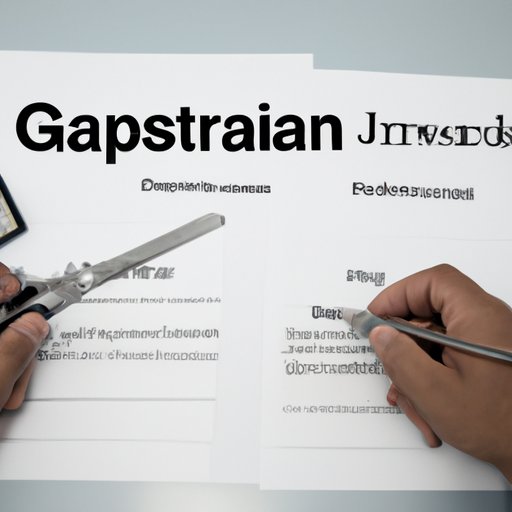Introduction
Garnishments can be a frightening experience for those who are struggling to make ends meet. When a creditor obtains a judgment against you, they can legally garnish your wages or bank accounts in order to pay off the debt. It is important to take action quickly in order to stop a garnishment before it takes too much of your hard-earned money. This article will provide an overview of the steps you can take to stop a garnishment.
Negotiate with the Creditor
The first step in stopping a garnishment is to contact the creditor directly. Explain your financial hardship and ask if they would be willing to negotiate a repayment plan. This may involve paying a lump sum or making regular payments over time. If the creditor agrees to a repayment plan, they may agree to stop the garnishment.
Request a Hardship Stay
If you are unable to negotiate with the creditor, you may be able to request a hardship stay. This involves explaining your financial situation to the court and asking them to temporarily stop the garnishment. You must provide evidence that you are unable to make the required payments due to your current financial hardship.
File for Bankruptcy
Filing for bankruptcy can provide relief from garnishments. Once you have filed for bankruptcy, the creditor must stop all collection efforts, including wage garnishments. However, it is important to note that filing for bankruptcy does not erase the debt and you will still be responsible for repaying it.
Appeal the Garnishment
If you believe the garnishment is invalid, you can file an appeal in court. In some cases, the court may find that the garnishment was not legally issued and order the creditor to stop the garnishment. It is important to consult an experienced attorney to ensure that you have a strong case.
Pay Off the Debt
If you are able to pay off the debt in full, the creditor must stop the garnishment. You may be able to negotiate a lower amount with the creditor if you are unable to pay the full amount. It is important to get any agreement in writing so that you have proof if the creditor fails to stop the garnishment.
Seek Legal Advice
Consulting an experienced attorney is the best way to learn about your rights and the best way to handle the garnishment. An attorney can help you understand the legal process and can provide advice on the best course of action to take.
Consolidate Your Debts
Another option to stop a garnishment is to consolidate your debts. This involves taking out a loan to pay off all of your existing debts. By consolidating your debts, you can reduce the burden of wage garnishments and make it easier to manage your payments.
Conclusion
Garnishments can be a frightening experience for those who are struggling to make ends meet. Fortunately, there are several options available for those who wish to stop a garnishment. These include negotiating with the creditor, requesting a hardship stay, filing for bankruptcy, appealing the garnishment, paying off the debt, seeking legal advice, and consolidating your debts. It is important to take action quickly in order to stop a garnishment before it takes too much of your hard-earned money.
(Note: Is this article not meeting your expectations? Do you have knowledge or insights to share? Unlock new opportunities and expand your reach by joining our authors team. Click Registration to join us and share your expertise with our readers.)
